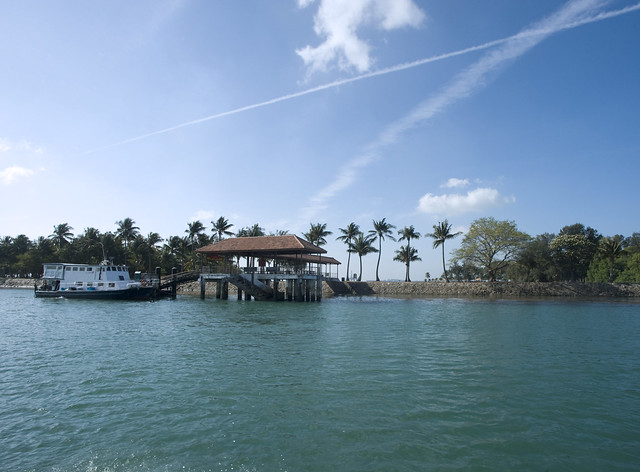 |
| Pulau Hantu Kecil |
From media articles:
All asbestos removal works on St John’s Island and Pulau Hantu have been completed, the Singapore Land Authority (SLA) announced on Friday (Mar 29).
SLA also added that the campsite on St John’s Island will reopen in June.
This comes a year after the discovery of asbestos on St John’s Island by SLA contractors during maintenance and upgrading works last April.
Traces of asbestos were detected in construction debris such as roof tiles around the island's campsite, lagoon and holiday bungalow area.
Further traces of asbestos were also found on Kusu Island and Pulau Hantu but not on Lazarus Island, Pulau Seringat and Kias Island.
Kusu Island was cleared of asbestos last September and has been reopened to the public, SLA said in its press release on Friday.
“SLA has since completed all asbestos removal works on St John’s Island and Pulau Hantu, and both islands will be fully reopened to the public,” SLA added.
“With this, all asbestos waste on the islands managed by SLA has been cleared safely."
Asbestos is a naturally occurring mineral that has been banned in Singapore since 1989 due to health concerns. It was commonly used as a construction material in the past.
Further traces of asbestos were also found on Pulau Ubin and Big Sister's island, which are managed by NParks, but has been removed from the islands.
Asbestos is a fibrous mineral that was once a popular component in construction materials.
Due to its links to health problems such as lung cancer, its use in buildings was banned in Singapore in 1989, but many earlier structures still contain the substance.
Structures containing asbestos pose no risk to humans if they are intact. However, when there is damage or disturbance, such as sawing and cutting, fibres may be released into the air and inhaled.
